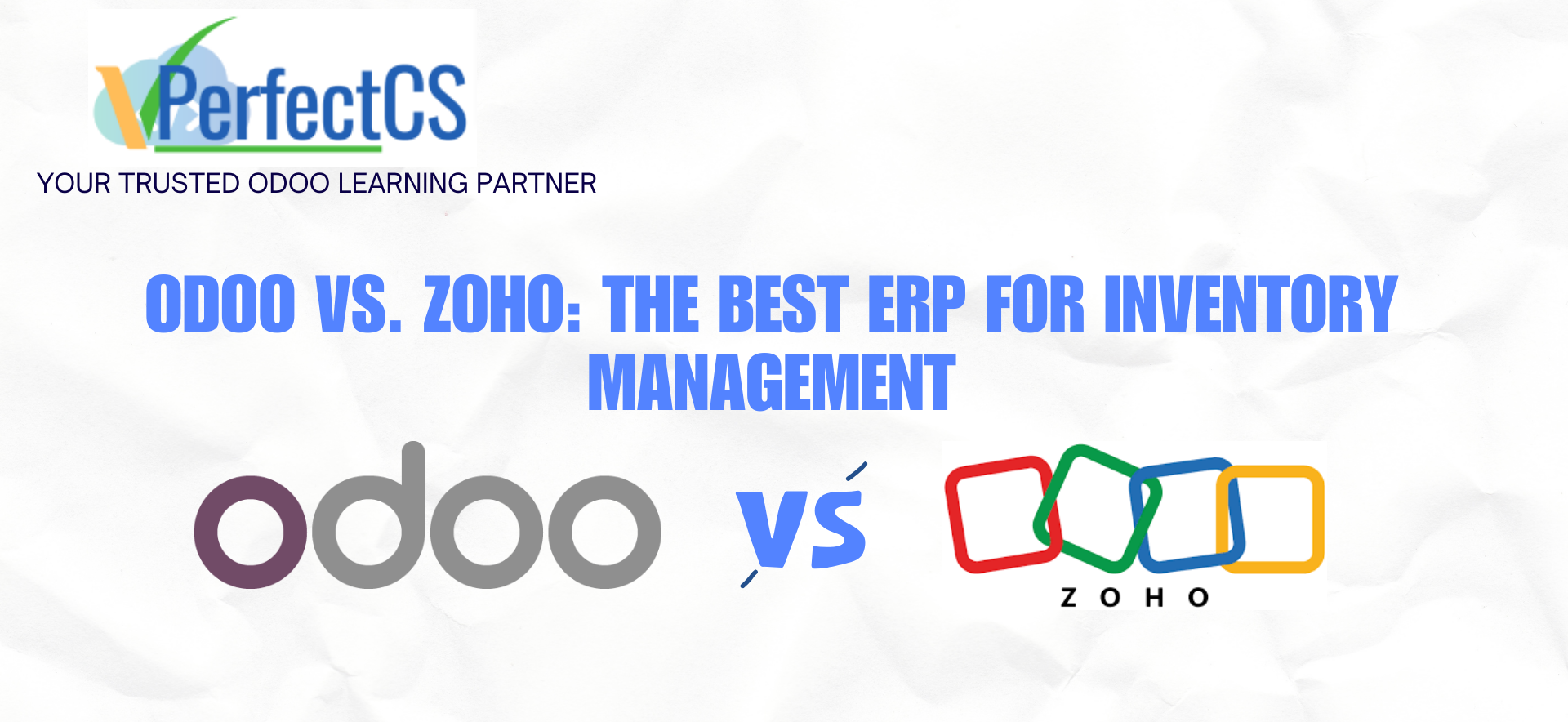Odoo vs. Zoho: The Best ERP for Inventory Management
Efficient inventory management is at the core of successful business operations. Whether you’re running a retail store, a manufacturing unit, or a distribution network, choosing the right ERP system can significantly impact your inventory processes.
Two leading ERP solutions, Odoo and Zoho, offer robust inventory management features, but which one is the best fit for your business? Let’s dive into a detailed comparison.
Inventory Management in Odoo:
Odoo is an open-source ERP platform with a dedicated inventory management module. It provides advanced tools for tracking, organizing, and optimizing inventory across multiple locations. Features include:
Barcode Scanning: Simplifies stock operations and improves accuracy.
Multi-Warehouse Management: Streamlines operations across different warehouses.
Real-Time Tracking: Offers up-to-date visibility into stock levels.
Integration: Seamlessly connects with other Odoo modules like Sales, Purchase, and Manufacturing.
Inventory Management in Zoho:
Zoho Inventory is part of the Zoho suite, designed to help small and medium-sized businesses manage their stock efficiently. Key features include:
Order Management: Tracks orders from placement to fulfillment.
Stock Alerts: Prevents stock outs with timely notifications.
Multi-Channel Selling: Integrates with e-commerce platforms like Amazon and eBay.
User-Friendly Interface: Simplifies inventory tasks for small teams.
Feature Comparison: Odoo vs. Zoho for Inventory Management
Feature | Odoo | Zoho |
Customization | It is highly customizable to fit unique business workflows. | Limited customization; best for standard inventory processes. |
Integration | Seamlessly integrates with over 50 Odoo apps and third-party tools. | Works well within the Zoho ecosystem; limited external integrations. |
Scalability | Suitable for businesses of all sizes, including large enterprises. | Best for small to medium businesses. |
Advanced Features | Includes batch tracking, serial numbers, and IoT integration. | Focuses on basic inventory needs with fewer advanced tools. |
Cost | Free community edition; enterprise pricing is modular. | Subscription-based pricing; affordable for small businesses. |
Why Choose Odoo?
Advanced Capabilities: Odoo offers sophisticated tools like batch tracking, expiration dates, and automated replenishment.
Flexibility: Its open-source nature allows extensive customization to match unique business needs.
Scalability: Odoo grows with your business, making it suitable for startups and large enterprises alike.
Unified Platform: Integrates seamlessly with other Odoo modules for a holistic business solution.
Why Choose Zoho?
Ease of Use: Designed for small businesses, Zoho Inventory is simple and intuitive.
Affordability: Subscription plans are budget-friendly for startups and SMEs.
E-Commerce Integration: Perfect for businesses selling across multiple online platforms.
Quick Setup: Ideal for companies looking to get started with minimal IT overhead.
Key Takeaways:
Both Odoo and Zoho offer excellent inventory management solutions, but the choice depends on your specific needs:
Choose Odoo if you require advanced features, scalability, and seamless integration with other business processes.
Choose Zoho if you’re a small business prioritizing ease of use and affordability.
Ultimately, the right ERP system will depend on your business size, industry, and growth plans. For expert guidance on selecting and implementing the best ERP for your inventory management, contact us today for a free consultation.
Odoo Vs Zoho Inventory Comparison White Paper: Click here to Download
VPCS Cloud: Click here